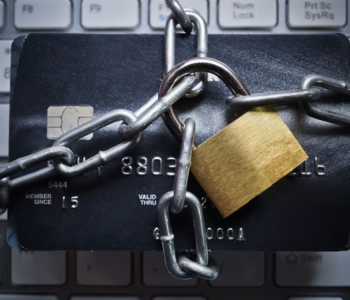 Credit Score
Credit Score
The Importance of Credit Alerts and Freezes
- November 8, 2023November 11, 2024
- by Morgan Newton
In an era where financial security is paramount, understanding the significance of credit alerts and freezes is vital. The world of personal finance is replete with challenges, and safeguarding your financial future should be a top priority. Credit alerts and freezes are powerful tools that can shield you from identity theft, unauthorized access to your credit information, and the resulting financial turmoil. This comprehensive guide explores the importance of credit alerts and freezes and the critical role they play in defending your financial well-being.

The Basics of Credit Alerts
Credit alerts serve as an early warning system, notifying you whenever there’s a significant change in your credit report. This change could be a new account opened in your name or a request for credit. The importance of credit alerts lies in their ability to keep you informed about any potentially fraudulent activity.
These alerts can be set up to be delivered via email, text message, or a phone call, ensuring that you’re promptly aware of any suspicious activity. This allows you to take immediate action to address the situation and prevent further harm to your credit profile.
How Credit Alerts Work
Understanding the mechanics of credit alerts is crucial. When a significant change occurs in your credit report, the credit reporting agency will notify you. This change might be an application for a new credit card, a loan application, or a request for a credit limit increase. The alert provides you with the specific details of the change, enabling you to verify whether it’s legitimate or the result of identity theft.
One of the most important aspects of credit alerts is that they are real-time notifications. This means that you are alerted as soon as the change is detected, giving you the opportunity to act swiftly to protect your credit.
The Role of Credit Freezes
While credit alerts serve as a notification system, credit freezes act as a preventative measure. When you place a credit freeze on your file, it restricts access to your credit report. This means that lenders and creditors won’t be able to review your credit history when someone applies for credit in your name.
The importance of credit freezes becomes evident in their ability to thwart identity thieves from opening new accounts in your name, as creditors won’t approve applications without reviewing your credit report. It’s like having a padlock on your credit information, rendering it inaccessible to unauthorized parties.
How to Implement Credit Freezes
Placing a credit freeze on your file is a straightforward process. You’ll need to contact each of the major credit reporting agencies individually. Once the freeze is in place, you’ll receive a unique PIN that allows you to temporarily lift the freeze when you legitimately need to apply for credit, like a new mortgage or credit card.
Credit freezes are a proactive measure that provide a robust defense against identity theft and financial fraud. They can give you peace of mind, knowing that your credit information is secure and inaccessible to potential wrongdoers.
Complementary Protection
Both credit alerts and credit freezes work together to provide comprehensive protection. Credit alerts act as a lookout, alerting you to any suspicious activity as it happens. Credit freezes, on the other hand, function as a locked vault, ensuring that your credit report is impenetrable to unauthorized access.
When used in conjunction, credit alerts and freezes form a powerful duo in guarding your financial well-being. While alerts keep you informed about changes in your credit, freezes act as a barrier against fraudulent attempts to access your credit information.
The Importance of Regular Monitoring
Setting up credit alerts and freezes is a significant step in safeguarding your financial future. However, it’s equally important to engage in regular monitoring of your credit reports. The importance of this practice lies in the fact that no system is foolproof, and some fraudulent activity may slip through the cracks.
Regular monitoring ensures that you’re aware of every change in your credit report, whether it’s the result of legitimate financial activity or potential fraud. It allows you to spot discrepancies and address them promptly, minimizing the potential damage caused by identity theft.
How to Implement Credit Monitoring
Implementing credit monitoring involves regularly checking your credit reports from the major credit bureaus, such as Equifax, Experian, and TransUnion. You can access free annual reports, or you can subscribe to credit monitoring services that provide ongoing access to your credit information.
The importance of credit monitoring is underscored by its ability to detect any discrepancies or inaccuracies in your credit report. If you discover any suspicious activity, you can take immediate action to rectify the situation.
Conclusion
In conclusion, the importance of credit alerts and freezes cannot be overstated when it comes to safeguarding your financial future. These tools are the guardians of your credit, serving as a protective shield against identity theft and unauthorized access to your financial information. By understanding their roles, implementing them effectively, and complementing them with regular credit monitoring, you can build a financial fortress that secures your well-being and peace of mind.
You will find the following information useful:















